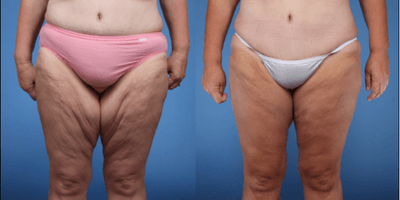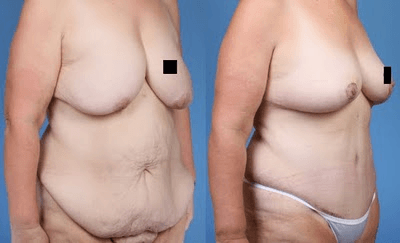Get all your answers to bariatric surgery, post bariatric body contouring and how you can prepare for optimal healing.
Post-Bariatric Body Contouring Surgery is very rewarding to both the patient and Surgeon.
What is bariatric surgery?
Bariatric surgery, or weight loss surgery, are procedures performed on people who are dangerously obese, for the purpose of losing weight and improving their overall health. Weight loss is achieved by reducing the size of the stomach, through removal of a portion of the stomach, or by resecting and re-routing the small intestines to a small stomach pouch. These procedures are called gastric banding, sleeve gastrectomy, or gastric bypass surgery, respectively. Not only can these surgeries produce significant long-term loss of weight, but also improve diabetes, lower blood pressure, improve cardiovascular risk factors, and reduce mortality.
Can bariatric surgery be covered or partially covered by my insurance?
Generally, insurance will assist in covering these procedures for obese people with a BMI over 40 or people with a BMI of over 35 with coexisting medical conditions.
Can the post-bariatric body contouring procedures be covered or partially covered by my insurance?
Patients who have bariatric procedures loose over 100 lbs of weight and are left with excess skin that they find impossible to tighten. Occasionally, the abdominal skin that overhangs the pubis can cause rashes in the area between the skin. Typically, if patients have these rashes and they are not relieved by prescription medications or other conservative measures to treat them for over six months, then insurance will cover or partially cover a panniculectomy. A panniculectomy is the removal of the overhanging skin or pannus. Other post-bariatric procedures may be covered or partially covered by health insurance or patients may pay for these procedures out-of-pocket.
What can I do nutritionally to prepare for surgery?
Post-bariatric body contouring procedures are significant surgeries that require a lot of energy expenditure for the body to heal. I typically tell patients to eat one to two grams of protein per kilogram of body weight 4 weeks prior to and 4 weeks after surgery to optimize their healing. This diet improves outcomes and prevents wound complications.




Leave a reply